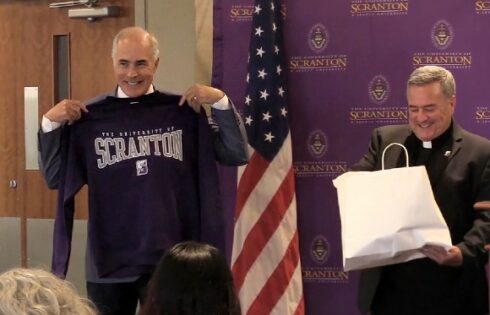
Reassurance on the surface, threats in the subtext
In large or even small organizations that have an established communications office, leaders sometimes “ask” employees to direct any media queries they receive to that office.
The thinking goes that the organization should put out a unified response with the most accurate and helpful information, rather than let an employee go off-script or pass along information that has not been vetted.
This is annoying for journalists, who may try to bypass the communications office for a good reason, but it can also breed fear among employees who aren’t sure how voluntary the request is.
By its actions if not its explicit words over the past year and a half, New Hampshire’s Keene State College has been leading employees to believe they can’t speak with student journalists or even the local media without getting in trouble.
The Student Press Law Center reports the Keene administration drew its clearest line in the sand last month when President Anne Huot rejected a “clearer press access policy” proposed by the journalism faculty.
According to Prof. Julio Del Sesto, Huot refused to give faculty a few explicit guarantees:
an acknowledgement that Keene “respects the First Amendment rights of all journalists” on campus
journalists don’t have to ask permission from the administration or comms office or submit their questions for central approval in order to pursue stories
students and employees can speak with journalists “without fear of reprisal” and without seeking permission
comms staff won’t sit in on interviews “except concerning issues of the highest institutional importance”
Rather, President Huot sent faculty an email saying it’s a “professional courtesy” for professors to tell comms that a journalist wants an interview: “It’s not a requirement. You are free to make that choice individually.”
This is BS on the level of the Church of Scientology saying its members are free to leave.
Del Sesto notes one of his colleagues asked him what she should do if a journalist wants an interview: “It seems that everyone feels it’s necessary for everything to go through Marketing and Communications.”
These requests by journalism faculty didn’t come out of thin air. The campus paper The Equinox said it has struggled to get interviews with employees for stories, and when it does, a comms office staffer is often sitting in on the interview.
Journalism faculty said they have documented 20 instances “of students being told by employees on campus they are not allowed to talk to student journalists” and must go through the comms office.
Local paper The Keene Sentinel said it “routinely” deals with faculty and other officials refusing to speak “until given clearance by the communications department” as well:
Late last month, the [Equinox] attempted to write a story addressing the retirement of Deborah Edwards, a student support staff member, and the impact it would have on the Young Student Center where she worked, according to the editorial. While Edwards initially agreed to an interview when contacted directly by the Equinox, she appeared to change her mind in a follow-up email, telling the paper’s staff that she didn’t have information on the issue, the editorial says.
When the paper reached out to other employees at the Center, they were directed to route their queries through the communications department, the editorial says. Upon doing so, two faculty members gave identical statements declining comment that appeared coordinated, according to the editorial. After eventually contacting college President Anne Huot, the paper was again told to go through the communications department, which told the paper to email its questions as Huot’s schedule was too busy for an interview, the editorial reads.
In the end, the paper dropped the article.
Keene State’s strategy is all too clear: It will control the narrative at all costs, issuing statements that reassure employees on the surface and threaten them in the subtext.
Like The College Fix on Facebook / Follow us on Twitter
IMAGE: NOBUHIRO ASADA/Shutterstock







Please join the conversation about our stories on Facebook, Twitter, Instagram, Reddit, MeWe, Rumble, Gab, Minds and Gettr.